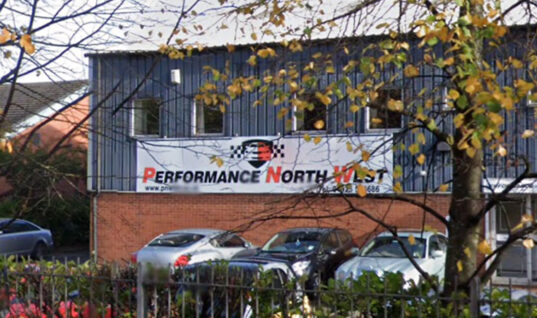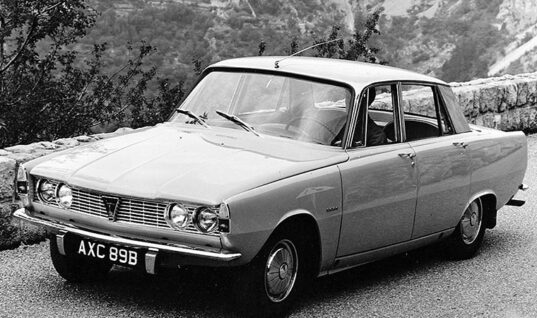Mike Hawes, the chief executive of the Society of Motor Manufacturers and Traders (SMMT), welcomed the new Tory government with an immediate request that it “restore business and economic confidence and re-establish the UK’s reputation as a great place to invest”.

Hayley Pells (far right) with her technicians at Avia Autos.
Looking at the last time the Tories enjoyed such a majority was under Thatcher who charmed international motor manufacturing to our shores.
This brought exciting new technology and the ‘just in time’ process that radicalised the industry.
Following the shift from traditional core industries, this much needed investment following deindustrialisation created a boom in the prosperity of the country.
Related: The solid state battery still has more to offer for future EVs

Image: SMMT.
This legacy, especially the Nissan deal continued right up until recently when Europe made a new deal with Japan, meaning it is now free to build on its home shores, shipping finished product directly into Europe.
Couple this with the disinclination towards the large diesel engines that the UK was producing, it was no longer economically viable to produce those motors here.
Thatcher’s pitch to Japan was scaffolded by membership of the European Economic Community so it has been easy to see why the automotive industry has been so nervous of the Brexit campaign.
SMMT figures which show a falling rate of car manufacturing – by 14 per cent in the year to October when compared to the same period last year – have been of grave concern.
Cause of uncertainty
Brexit has been demonised as the cause of uncertainty and the lack of confidence in British car manufacturing.
Tentative steps to encourage new growth, particularly in electric and hybrid vehicle technology, have been slow but South Wales appears to be welcoming new investors even as goodbyes are said to manufacturing plants who have been in the area for some time.
A large proportion of car industry employees work in constituencies with new Conservative majorities.
Bridgend, where the automotive industry has been critical to economic health, has become decidedly Conservative.
When Bridgend was first created in 1983, under Thatcher, it was blue, switching to red in 1987, the seat had been held by Labour ever since, even with the same MP since 2005.
2019 General Election results
This connection between the automotive industry and the pain the Brexit process has caused is echoed across constituencies over the UK.
It appears that the Labour proposal for yet another referendum was something that workers of the automotive industry in South Wales felt that they simply couldn’t risk.
Sunderland appeared to be reassured of Nissan’s Juke production and plans for a no-deal Brexit and all three Labour candidates retained their seats which they have held since 2010, there was still a significant number of seven Conservative gained seats in the area traditionally a Labour stronghold.
The automotive industry, being so critical to the economic well-being of the country has been largely ignored politically and perhaps the vote for certainty, no matter what that certainty is, has appealed to the sector.
Or perhaps cars have previously done well with the Conservatives and there is hope of replication of Thatcher’s trade deal success?
Share your comments below.








Home Page › Forums › Opinion: Why the Tory win could be good for UK’s automotive industry